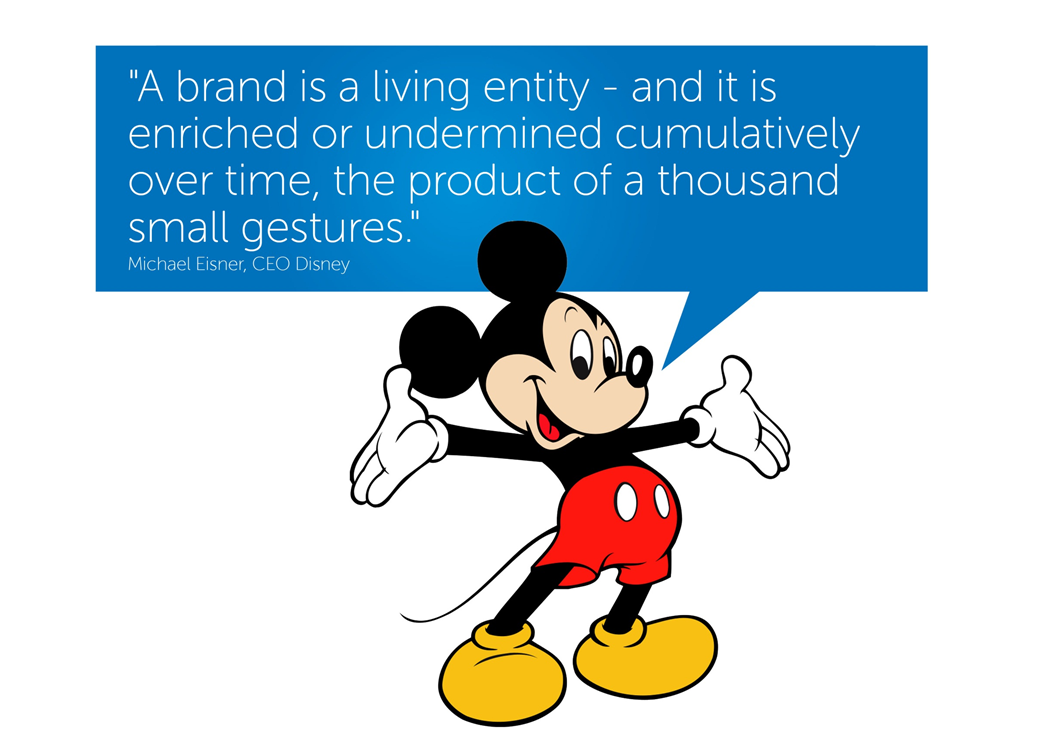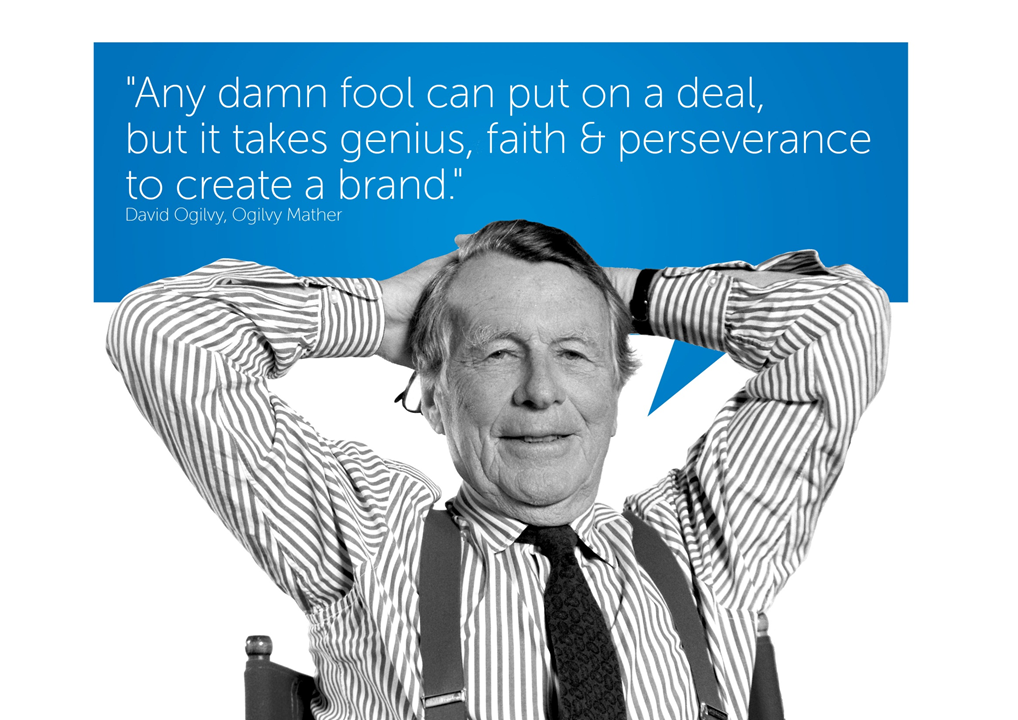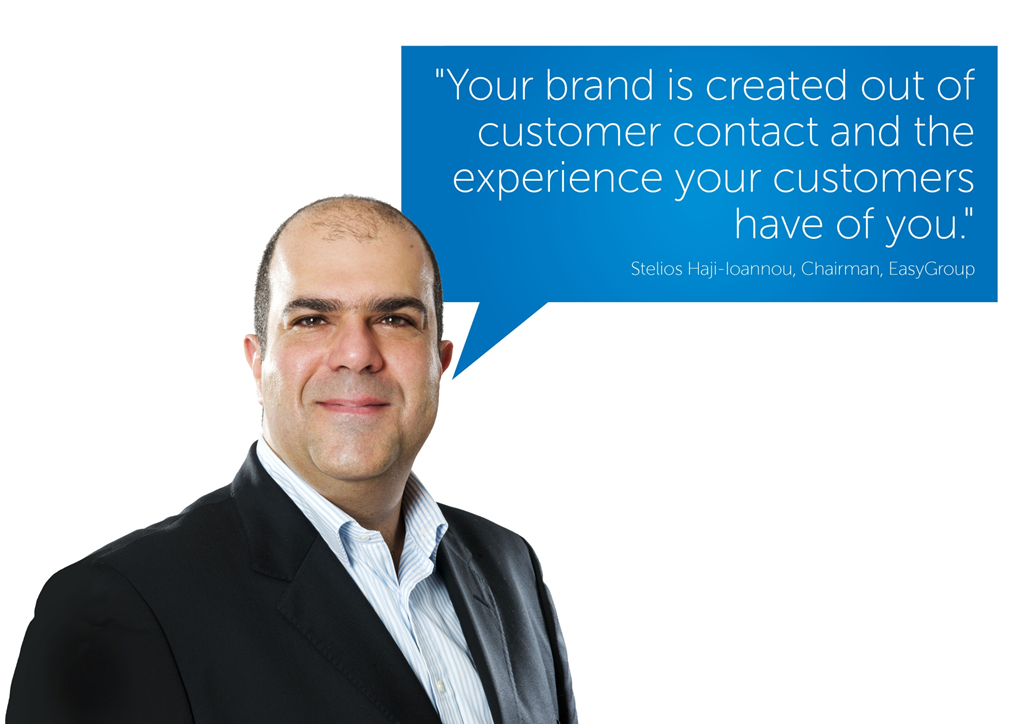Put your eggs in every basket you can.
Every January, for the last few years, the lovely people a Valuable Contenthave been kind enough to ask me for my predictions for the important marketing trends in the coming year. I enjoy this kind of crystal ball gazing, mainly because it reminds me what I myself need to concentrate on, but also because it gives me the chance to highlight some great things that the people I admire are doing.
This year I wrote: “In 2015 having a great digital reputation is going to become even more important. Having a rich tapestry of films, conversations and articles across numerous platforms and publications will be essential to building a strong brand and for sales.
The key trick, however, will be sharing useful information and great entertainment that is not your own. Marketing teams have to become curators of interesting and intelligent content, so understanding your customers’ tastes will be vital. Harnessing the dark-sharing style of “saw this and thought you’d enjoy it” will be a killer skill. Very few will do it well, but those that do will be the year’s winners.”
I’m going to write more about the importance of being a curator another time, (The masters are Hiut Denim) but the secret of a rich tapestry is in the variety of platforms you use to tell your stories. It’s no longer enough to just have a great website or a great blog. Anyone can be great on their own turf and on their own subject (and that’s of course essential too), you’ve got to be seen and heard in lots of unexpected places.
At my former company, Novatech, we used most of the usual platforms, but we also went wider and started using things like Spotify.
Initially the idea was to help with a graduate recruitment drive, but our regular playlists — crowd sourced each week on a different theme from the Novatech team — became really popular with our newsletter subscribers and customers. It was of course intentional (?!), but it allowed friends and fans to see behind the scenes and into our culture, and showed that we weren’t just tech-head geeks. Our Spotify channel added another dimension to the way people perceived Novatech and our brand. [NB: I recommend theSuperhero playlist and the far gentler Sweet and lowdown]
Like most companies we also experimented with Tumblr, Instagram,LinkedIn and other networks, but valuable as those all were, they were our property. It’s the foundation of all PR that you need to be seen and quoted in other people’s publications and that’s doubly true online.
We encouraged the sales teams to get involved in discussions in forums and on social media where their prospects spent their time. As a B2B PC manufacturer Novatech always had good coverage in the tech media, but it was branching out into management, accountancy, legal, design, architecture and engineering titles that really helped our sales teams.
These are old networking skills and it’s not a new idea to spread yourself wide, but too many organisations still misguidedly believe that simply posting regularly on Facebook and Twitter is a strong social media policy. If the analogy that social media is like a pub is true, then it follows that limiting yourself to one popular network is like standing in the corner of a very busy Wetherspoons on a Friday night yelling about your services. No one will hear you, and if they do you’ll sound a bit sad and you’ll probably just annoy them. Unlike.
I also added a footnote to my Valuable Content predictions, because there’s another important reason why focussing too much on one social channel isn’t a good idea.
“PS: Unless you’re a megabrand your Facebook page will become a ghost town. Facebook’s management have admitted that less than 10% of your followers will see your posts, so you might as well concentrate on generating and curating great content elsewhere. If your customers share your content on their Facebook timelines, it will still have huge amplification, but don’t look to your own page for traffic and conversations. The Facebook behemoth is only interested in your advertising spend now.”
At Novatech we noticed some time back that our Facebook posts weren’t having the impact that they once had, but if you sprinkled in a few ad dollars they magically spiked — and then some. Stop the ad spend and they dropped off again. That’s not surprising. Possibly advertising works, but actually in revenue terms that just wasn’t true. The ad-driven traffic was pretty superficial (and often strangely foreign considering we didn’t ship to SE Asia). Unsurprisingly, organically generated engagement was far, far more effective, but it was dropping off badly without ad support.
We guesstimated from the analytics that less that 5% of our followers were seeing our posts. Stretching the analogy a bit, it’s like we were in that crowded pub. It’s chock full of our kind of people, but most of our friends had no idea that we were hidden away in the corner amiably sipping a pint and Wetherspoons weren’t about to tell them. Why would they when the big alcohol companies were paying them to shout about their presence?
Here’s the rub. Facebook is too big for most organisations to be effectively heard above the din. Remember Bebo? MySpace? Napster? These were huge communities for a while, but for various reasons they aren’t anymore. Facebook was once a great to hang out if you were a smart organisation — but they’ve grown and evolved and they’re not really interested in your organisation now.
So whilst you should maintain your Facebook page (you never know if you’ll meet someone good in a corner, even of a Wetherspoons), but head out to some smaller bars, cafes and restaurants. Go to the working men’s clubs, the cricket club, the gym and of course hang out on the beach. That’s where you’ll find the best people.
As a footnote, I should clarify that Facebook is still a very powerful amplifier for any company or organisation, but nearly always that will come from someone else posting your stuff, or writing about you. So, as usual, create great stuff — everywhere you can — and let your friends and fans do the rest.
Besides, as a wise wag once said “social media is where people go to waste time. Brands need to be respectful of that”.
The original Valuable Content article with much more sage advice, from wiser heads, is here: http://www.valuablecontent.co.uk/marketing-trends-for-2015-predictions-from-those-who-know/




